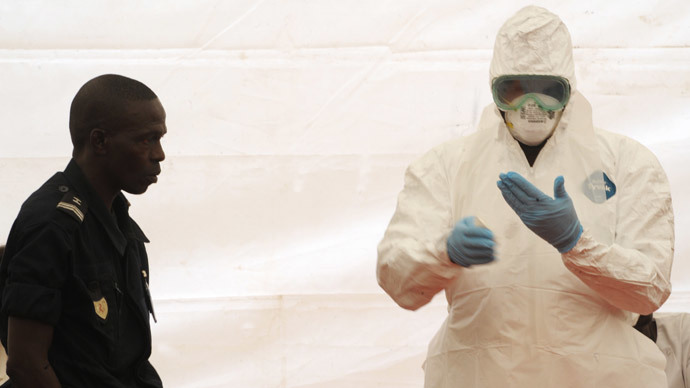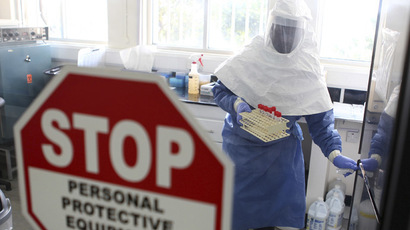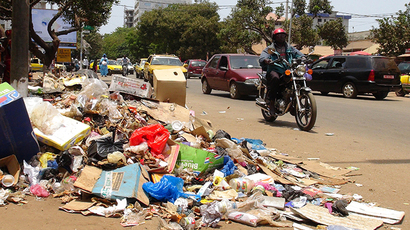'Most challenging' deadly disease outbreak: WHO speaks out on Ebola dangers

West Africa is seeing the “most challenging” outbreak of Ebola virus since the disease was discovered 40 years ago. It comes as the death toll reaches over 100, the World Health Organization reported.
"This is one of the most challenging Ebola outbreaks we have ever faced," Keiji Fukuda, assistant director-general of the World Health Organization (WHO) told a news briefing.
The most severe cases of the illness have had a 90 percent fatality rate, and there is no vaccine, cure or specific treatment.
New figures released by the WHO on Tuesday indicate there have been 157 suspected cases in Guinea, 101 of them fatal. Sixty-seven of the cases were confirmed in WHO laboratories.
Ebola’s symptoms are hemorrhagic fever, muscle pain, weakness, vomiting, diarrhea and, in severe cases, organ failure and unstoppable bleeding.
Also, the WHO is concerned that the deadly virus is spreading from the epicenter in the forests of southern
Guinea.
"We have not had an Ebola outbreak in this part of Africa
before," Fukuda said.
The virus is triggering panic among the region’s population: last week, an angry crowd in the south of Guinea attacked international aid workers, blaming them for bringing the fever to Africa.
Concerning that violent reaction, Fukuda stressed the importance of "getting out as much accurate information as possible to communities and the countries affected, reducing the rumors, so that people have facts to work with."
The organization doesn’t see an end to the epidemic anytime soon.
"We fully expect to be engaged in this outbreak for another two, three, four months," Fukuda told AFP.
Other countries across West Africa have been bracing against the epidemic, with Senegal closing its border with Guinea. The situation is especially worrying for the country, which depends on the tourist heavily industry, with 1 million visitors in 2011.
"We have everything in place to take measures against Ebola. We have a well-oiled system, which we are perfecting daily," Senegal's Health Minister Eva Marie Coll Seck told AFP on Tuesday.
In Liberia, there have been 21 cases, including 10 fatalities, of which five have been confirmed as Ebola. Also, Mali has seen nine suspected cases, with tests so far showing two of them did not have the virus.
"Obviously there is a risk that other countries might be affected, therefore we absolutely need to remain vigilant," said Stephane Hugonnet, a WHO medical officer who recently returned from Guinea.
Ebola was first discovered in 1976 in what is currently the Democratic Republic of Congo.
The largest-ever outbreak was in 2000-01 in Uganda, with 425 cases, about half of whom died, according to WHO estimates.














